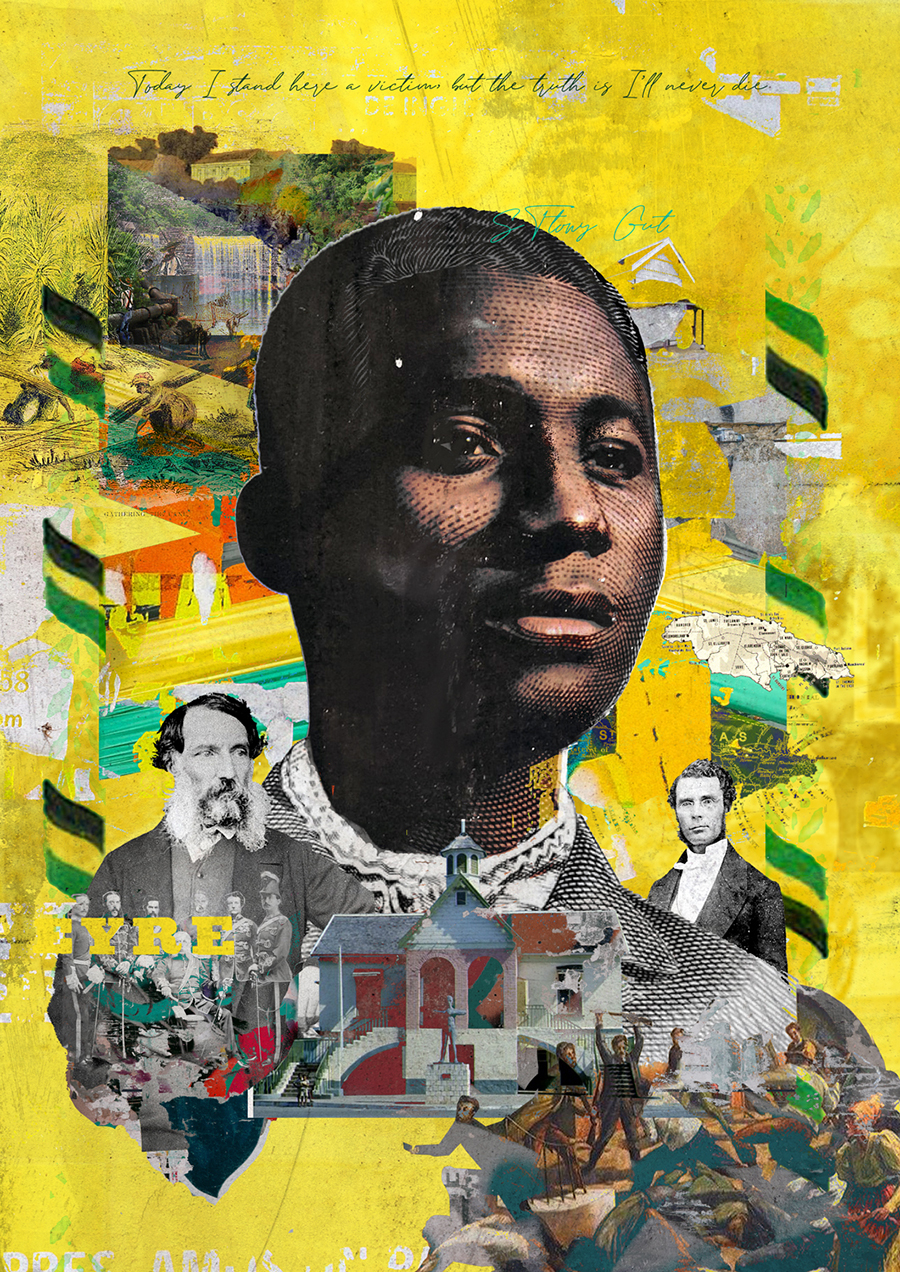Source A

Paul Bogle – Unlikely hero
(Quiet reading)
Paul Bogle was a Preacher, who was tried under martial law for leading a rebellion in Morant Bay and executed. So who was he, and why is he now celebrated as a hero in Jamaican culture today?
Bogle was born in c.1822 in Stony Gut, Jamaica in the parish of St. Thomas. In 1807 the slave trade was made illegal however enslaved people and their children were still classed as property in Jamaica until 1834, so Bogle grew up during a time of transition.
He grew up on a plantation, and even as a young boy he cared for those around him, and stood out as a leader amongst the children he grew up with. As a boy when the militia came looking for runaway slaves and took the adults of the village away, he looked after the rest of the children by organising them to make food and sing hymns until the adults came back.
The community of Stony Gut was made up of small farmers. Bogle started as a small farmer but was a smart businessman and went on to acquire 500 acres of land. As an educated wealthy landowner Bogle was one of only 106 persons on the voters list – so he also had influence. Unlike many Jamaicans of African descent he was able to both read and write and afford the hefty fee to be able to vote. He became a Baptist Deacon.
After The Abolition of Slavery Act was passed in 1834, the owners of enslaved people received over £20 million of compensation, however the enslaved people received nothing. Bogle observed that although slavery had been abolished, the new system continued to oppress and deny opportunities to Jamaicans of African descent. One of the ways that power was maintained by the colonial ruling class, was the fee for voting which meant that the majority of Jamaicans of African descent could not afford to exercise their right to vote. In addition, though they could legally own land, they were not given the opportunities which would enable them to earn enough money to buy it. Bogle was a great orator, and he used this skill to improve conditions for his community. His actions were incredibly brave, as being a spokesman for the Stony Gut Jamaicans meant it was likely he would come into conflict with men like Edward John Eyre the Governor of Jamaica and other Europeans who held power.
Paul was a peaceful man, and tried to make a difference by using peaceful means. Paul led a group of small farmers to march 45 miles from Stony Gut to Spanish Town to talk to Governor Eyre. When they got there Governor Eyre refused to see them. Bogle’s popularity grew, and his popularity made him a threat.
Bogle used his influence with the Baptist Missionary to campaign for change. He offered practical solutions, such as the granting of land from the crown to Jamaicans of African descent so they could work for their own improvement. On 7th October 1865, an innocent man of African descent was arrested and sent to trial for trespassing on an abandoned plantation and this outraged the Stony Gut community. Bogle organised a peaceful protest at the Court House. When they arrived, militia tried to arrest individuals for protesting in court, and the Stony Gut community defended themselves with sticks and stones. The militia were forced to back down. This felt like progress.
However, Governor Eyre sent out 27 warrants for arrest including one for Paul Bogle, and on 11 October 1865 Paul Bogle organised a protest against this injustice. Bogle led 300 villagers to peacefully protest outside of the courthouse. They carried no weapons. The local militia opened fire on the crowd killing 7 of the protesters. However, the crowd did not disperse, and angered by these actions, they fought back with sticks and stones. The courthouse was set on fire. Others rushed to support this fight against the Government and the crowd swelled to 2000. 18 more people were killed. Eventually the militia were forced to back down. What began as a peaceful protest had turned into a rebellion.
Governor Eyre sent out an order to hunt down those involved in the rebellion. Under Brigadier-General Alexander Nelson, the poorly armed rebels were hunted down. The troops met with no organised resistance, but they killed indiscriminately. According to one soldier, "we slaughtered all before us… man or woman or child”. Without a fair trial Paul Bogle was hung alongside 14 others including his brother Moses.
Paul Bogle’s last words were “Today I stand here a victim, but the truth is I’ll never die.”
